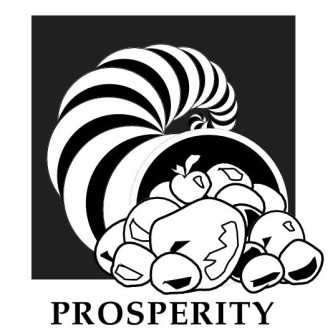
We’ll gather in a rustic Evanston back yard [you get the exact address when you RSVP] to commemorate Henry George’s 174th birthday (actually he was born September 2, but that’s inconvenient for most working folks). This year, we’re also celebrating a new team supporting School operations. In honor of which, and thanks to the generosity of HGS supporters past and present, everyone who’s completed any HGS course, ever, is welcome to attend without charge. Bring a significant other, or a friend who might find HGS or interest, also no charge. And of course no charge for your minor dependents. We hope to see people who might have taken a course years ago and almost lost touch with us. Come by, meet the new team, and share your ideas.
There will be food, drink, a lot of conversation and maybe some productive argument about how to help our community understand how the economy works, the fundamental principles which can be harnessed to bring prosperity and freedom.
PLEASE PLEASE PLEASE let us know by Friday September 4 whether you’ll be coming. It would be great, but not required, if you can bring something to share. Monetary donations are also extremely welcome, and can be made here, or by check to the School, or at the event.
This session introduces Progress & Poverty, including an overview of what we cover in the course. Even if you don’t plan to take the full course, you can expect this introductory session to help you gain a new and useful perspective on today’s problems of wealth concentration, poverty, and lack of opportunity.
America in the 1870s faced increasing poverty, rising unemployment, rule by an elite and their corporations– many of the same problems we’re experiencing today. Henry George described the cause of these problems and proposed a remedy which is even more applicable today than it was in his time. His book Progress & Poverty, perhaps the best-selling nonfiction book of the 19th century, presented his analysis and solution.
In this “classic” version of the course, students are encouraged to read the original 1879 text, and/or modern summaries and supplements, and to evaluate what George says against their own experience and understanding. You’ll gain a new understanding of how the economy works, which public policies promote liberty and prosperity, and which don’t.
Class meets every Tuesday, beginning 6:15PM on January 19, ending March 22. More information about the course is here and here. Pre-registration is helpful but not required.
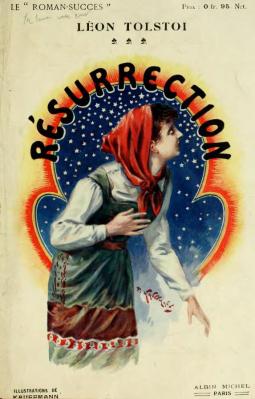 Resurrection (1899)
Resurrection (1899)
By Leo Tolstoy
This late 19th-century novel about nobleman Dmitri Ivanovich Nekhlyudov’s efforts at redemption after a life of sin is Tolstoy’s last major novel before his death in 1910. The readers will have a complex relationship with the tormented protagonist and his desperate attempts at redemption and forgiveness, since Nekhlyudov’s misguided decisions and youthful errors are often not so dissimilar from our own. Resurrection is a scathing exposition of the myriad prejudices of the man-made justice system and the hypocrisy of the establishment, while it also explores the economic philosophy of Georgism – of which Tolstoy had become a strong advocate toward the end of his life. [from the Culture Trip]
Political Economy Book Club discussions are open to everyone interested, without charge, and the text (in English translation) is available free from various sources including archive.org, who also offer a free audiobook. There is also a more recent translation by Anthony Briggs, which can be purchased or licensed in various formats and is available in some public libraries. Any questions about the PEBC may be directed to Convenor Bob Matter,

We’ll gather in a rustic south Evanston back yard [you get the exact address when you RSVP] to commemorate Henry George’s 177th birthday (actually he was born September 2, but that’s inconvenient for most working folks). This year, we’re also celebrating, we hope, the School’s new location (yet to be determined at this writing).
Thanks to the generosity of HGS supporters past and present, everyone who’s completed any HGS course, ever, is welcome to attend without charge. Bring a significant other, or a friend who might find HGS of interest, also no charge. And of course no charge for your minor dependents. We hope to see people who might have taken a course years ago and almost lost touch with us. Come by, meet some of the new students and graduates, as well as the volunteer staff.
There will be food, drink, a lot of conversation and maybe some productive discussion about how to help our community understand how the economy works, the fundamental principles which can be harnessed to bring prosperity and freedom.
PLEASE PLEASE PLEASE let us know by Friday September 2 whether you’ll be coming. It would be great, but not required, if you can bring something to share. Monetary donations are also extremely welcome, and can be made here, or by check to the School, or at the event.
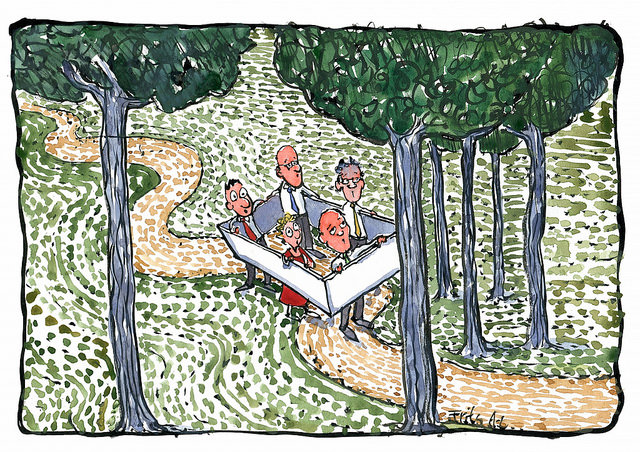
We’ll gather in a rundown south Evanston back yard [you get the exact address when you RSVP; be assured it is half a mile to publc transportation.] to commemorate Henry George’s 178th birthday (actually he was born September 2, but by tradition we use Labor Day). This year, we’re also celebrating our transition to a virtual school using multiple locations, no longer paying monthly rent to a landlord.
Thanks to the generosity of HGS supporters past and present, everyone who’s completed any HGS course, ever, is welcome to attend without charge. Bring a significant other, or a friend who might find HGS of interest, also no charge. And of course no charge for your minor dependents. We hope to see people who might have taken a course years ago and almost lost touch with us. Come by, meet some of the new students and graduates, as well as the volunteer staff.
There will be food, drink, a lot of conversation and maybe some productive discussion about how to help our community understand how the economy works, the fundamental principles which can be harnessed to bring prosperity and freedom.
PLEASE PLEASE PLEASE let us know by Friday September 1 whether you’ll be coming. It would be great, but not required, if you can bring something to share. Monetary donations are also extremely welcome, and can be made here, or by check to the School, or at the event.
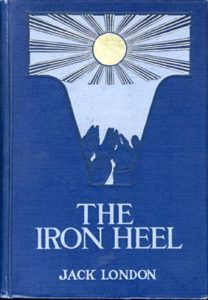 Bob Matter’s Political Economy Book Club is reading Jack London’s dystopian novel The Iron Heel. On June 25 we’ll discuss chapters 1-13, and on July 23 chapters 14-25. This 1908 text is available free from Project Gutenberg, in hardcopy from some public libraries, or as an audiobook. You can buy used hardcopies for < $10 from several vendors.
Bob Matter’s Political Economy Book Club is reading Jack London’s dystopian novel The Iron Heel. On June 25 we’ll discuss chapters 1-13, and on July 23 chapters 14-25. This 1908 text is available free from Project Gutenberg, in hardcopy from some public libraries, or as an audiobook. You can buy used hardcopies for < $10 from several vendors.
We’ll meet at the East Loop location of Bridgeport Coffeehouse, 73 E Jackson Blvd.
 Bob Matter’s Political Economy Book Club concludes its discussion of Jack London’s dystopian novel The Iron Heel. On July 23 we treat chapters 14-25.
Bob Matter’s Political Economy Book Club concludes its discussion of Jack London’s dystopian novel The Iron Heel. On July 23 we treat chapters 14-25.
We’ll meet at the east loop location of Bridgeport Coffee, 73 E Jackson.

Decades before Wealth of Nations, Adam Smith wrote what he seems to have considered a superior work, Theory of Moral Sentiments. He wrote:
How selfish soever man may be supposed, there are evidently some principles in his nature, which interest him in the fortune of others, and render their happiness necessary to him, though he derives nothing from it except the pleasure of seeing it.
Wikipedia asserts:
Smith critically examines the moral thinking of his time, and suggests that conscience arises from dynamic and interactive social relationships through which people seek “mutual sympathy of sentiments.”[74] His goal in writing the work was to explain the source of mankind’s ability to form moral judgement, given that people begin life with no moral sentiments at all. Smith proposes a theory of sympathy, in which the act of observing others and seeing the judgements they form of both others and oneself makes people aware of themselves and how others perceive their behaviour.
The Theory of Moral Sentiments has been printed in numerous editions, and is also available free on line. Smith revised the book throughout his lifetime; it’s best to avoid the first edition, and choose one published after his death in 1790.
In this session we’ll discuss parts 1-3 of the book, taking up parts 4-7 on November 20,
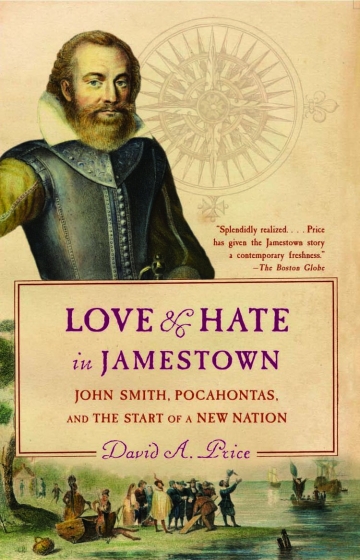 “In 1606, approximately 105 British colonists sailed to America, seeking gold and a trade route to the Pacific. Instead, they found disease, hunger, and hostile natives. Ill prepared for such hardship, the men responded with incompetence and infighting. Only the leadership of Captain John Smith averted doom….” (from the book jacket).
“In 1606, approximately 105 British colonists sailed to America, seeking gold and a trade route to the Pacific. Instead, they found disease, hunger, and hostile natives. Ill prepared for such hardship, the men responded with incompetence and infighting. Only the leadership of Captain John Smith averted doom….” (from the book jacket).

